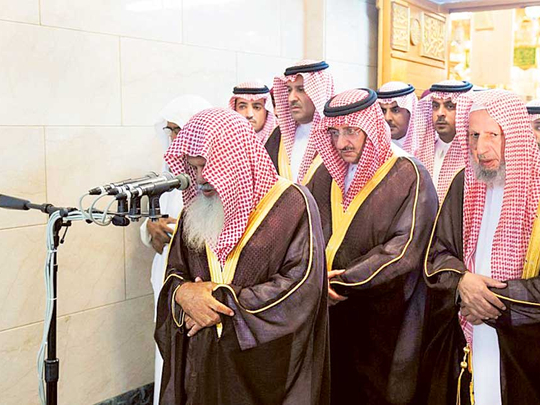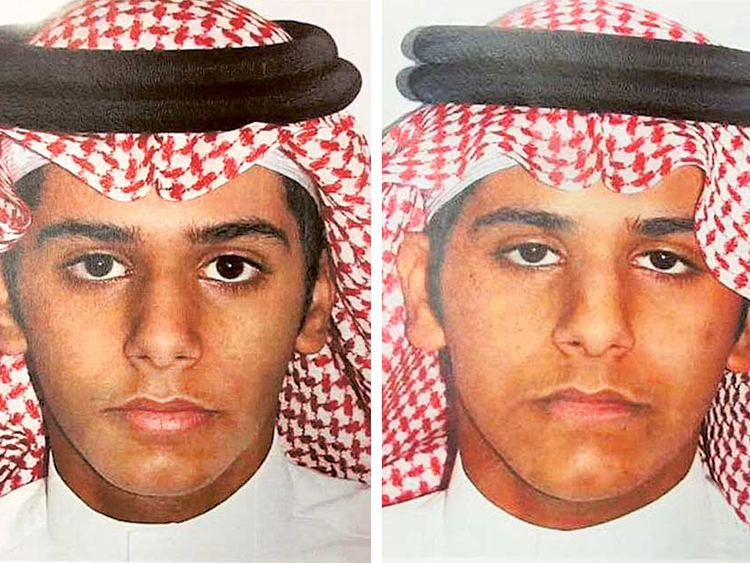
Dubai: Driven by radical beliefs, twin brothers allegedly killed their mother in Saudi Arabia after she tried to stop them from joining Daesh in Syria in a case that outraged Saudi Arabians worried about rising militancy.
“The only thing (we have established) is that they (the twins) follow Takfiri ideology,” Saudi interior ministry spokesman General Mansour Al Turki told Reuters.
Reuters was unable to contact the 20-year-old twins, or their lawyers or family members, and could not independently confirm if the alleged killing was influenced by Daesh or religious ideology – or what the mother actually said.
In a statement after the attack, the interior ministry said that the twins, Khalid and Saleh Al Oraini, were arrested on suspicion of stabbing their 67-year-old mother Haila, their 73-year-old father and their 22-year-old brother at the family home in Riyadh.
The mother, who died of her wounds, had objected to her sons joining Daesh in Syria, Saudi media reported.
The father and brother were in hospital in a serious condition, while the twins were arrested trying to flee across the border to Yemen, media said. Reuters was unable to confirm the status of family members or the whereabouts of the suspects.
“Had this come from drug addicts or ignorant youth, it would not have been unusual,” Saudi writer Mohammad Ali Al Mahmoud told Reuters. “The shock is that it came from a pair of religious children acting in the name of Islam.”
This is the fifth killing of family members by suspected militants in Saudi Arabia since July last year, the online Saudi news website akhbaar24 reported on June 26.
There have been similar cases of other killings of close relatives by Daesh members, including a widely reported incident in January in which a suspected militant killed his mother in public in the Syrian city of Raqqa because she had urged him to leave the group.
The killings compounded fears of radicalistion in Saudi Arabia. On Monday, suicide bombers struck three cities in an apparently coordinated campaign of attacks as people prepared to end their Ramadan fast, killing at least four security personnel.
The case has caused impassioned debate because Islam teaches that devotion to caring for elders is a pathway to heaven.
Some scholars and media commentators have asked if it is the teachings of Ibn Taymiyya, a 13th century Islamic scholar from Damascus known for his fatwas (religious opinion) about takfir that are behind young militants killing family members they regarded as apostates.
Daesh embraces the concept of takfir, often quoting Ibn Taymiyya to exhort its followers to kill other Muslims seen as apostates, including relatives. The word takfir is derived from the Arabic word kafer, which means unbeliever.
Joining debate over the case, several writers and scholars said it was time to remove the sanctity from traditional theology that permits such actions, saying ancient teachings are not always appropriate in the modern age.
Writing on Twitter after the killing, columnist Mohammad Al Shaikh called for reviewing “our readings of the theological heritage of Ibn Taymiyya” to clarify it belonged “to a different time and different circumstances. Otherwise, terrorism will not end.”
Al Mahmoud said the first step in fighting militant ideology would be by opening up Ibn Taymiyya’s teachings for debate.
“What is needed now is to drain this swamp, by opening the door to criticising our heritage,” the writer told Reuters. “What is needed is to shake the confidence in these teachings that are being imported from our distant past.”










